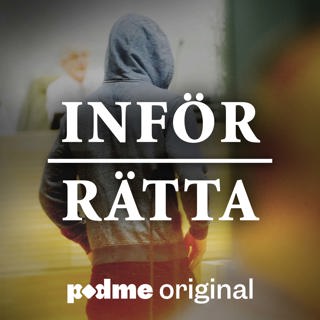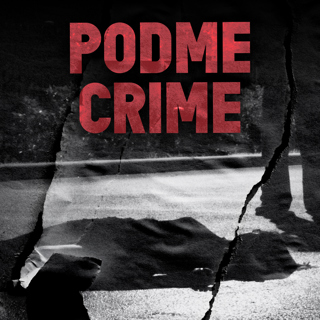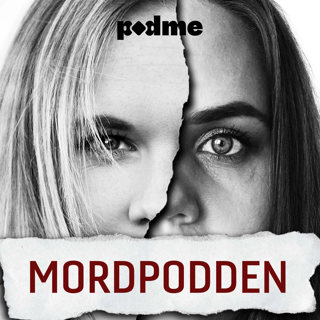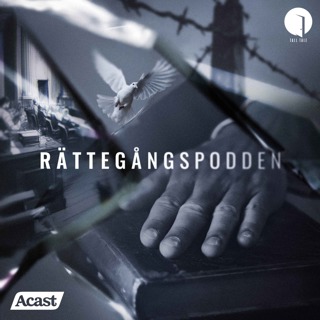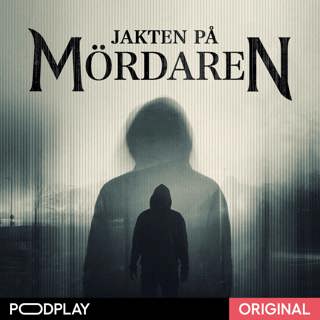
King Burrito's World Domination Plans
This briefing document summarizes the key themes, ideas, and facts presented in the "King Burrito's Universal Takeover: A Digital Saga" excerpts, primarily drawn from the "kingburrito.mp3" audio recording. The central figure, Alberto (aka "King Burrito"), hosts a dynamic and often chaotic Twitter Space, blending spontaneous musical performances, personal reflections, playful banter with co-host Kay, and an increasingly elaborate vision for a global "King Burrito" empire. The discussion is frequently punctuated by technical glitches with Twitter Spaces and humorous misinterpretations by the live captions, which become a running gag and source of amusement. A significant portion of the conversation is dedicated to the expansive, almost dystopian, business model of King Burrito and later delves into the practicalities and creative applications of AI in art and animation.
9 Juli 35min
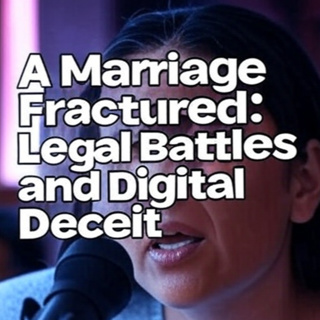
A Marriage Fractured: Legal Battles and Digital Deceit
In an audio conversation , a woman shares her harrowing divorce experience, detailing how her husband orchestrated a protective order against her, leaving her homeless and without financial support. She describes psychological abuse and controlling tactics, as well as the struggle to maintain custody of her children, suggesting a narrative of manipulation and legal adversity . The conversation also expands on social and political issues in Pennsylvania , noting government corruption and religious extremism. Other participants offer perspectives on the current US political landscape , debating polarization, lack of trust in institutions, and distorted perceptions of reality. Additionally, communication and security technologies are discussed , such as decentralized networks and cybersecurity risks, as well as the use of AI and the privacy implications of digitalization.
9 Juli 22min

The Hacker or The Hero; The Uruguayan Cyber-Raid That Redefined Justice
The Digital Ghost of Montevideo: The Trials and Triumphs of Alberto Daniel HillIntroduction: The Paradox of the Perfect TargetIn September 2017, a specialized unit of the Uruguayan police descended upon an apartment in the capital city of Montevideo. Inside, they believed they had discovered the nerve center of a sophisticated cybercriminal. The scene was a tableau of suspicion: thirteen hard drives, multiple laptops and cell phones, a stack of hardware cryptocurrency wallets, a device for cloning credit cards, a menacing-looking paper cutter they labeled a "guillotine," and a Guy Fawkes mask, the adopted symbol of the hacktivist collective Anonymous.1 For the investigators, it was a jackpot—the physical manifestation of a digital menace who, months earlier, had allegedly hacked a major medical provider and attempted to extort it for Bitcoin.1 They arrested the resident, Alberto Daniel Hill, and felt the case was closed.1The man they took into custody, however, was not a criminal mastermind hiding in the shadows. He was a 41-year-old, highly credentialed cybersecurity professional with over two decades of experience working for the Uruguayan government, Interpol, and the country's largest corporations.1 This dichotomy establishes the central paradox of Alberto Hill's story: the very tools of his legitimate trade, the artifacts of a career spent in computer forensics and ethical hacking, were misconstrued as the irrefutable evidence of a crime he maintains he did not commit.2 He was, in the words of those who later chronicled his case, the "perfect target" for a judicial system that did not understand cybersecurity or cybercrimes.4The prosecution of Alberto Daniel Hill is more than the personal tragedy of a wrongful conviction; it is a seminal case study in the collision between 21st-century technology and 20th-century legal frameworks. His journey—from a curious young tinkerer to a respected security expert, from the first hacker imprisoned in Uruguay to a resilient advocate for legal reform—illuminates the profound dangers that arise when law enforcement and the judiciary lack the technological literacy to distinguish between a white-hat hacker working to protect systems and a black-hat actor seeking to exploit them. This report will dissect Hill's career, the anatomy of his prosecution, and his subsequent reinvention as an entrepreneur and activist, revealing how one man's ordeal put an entire nation's approach to cybersecurity on trial.
9 Juli 6min

The Enigma of @jonathandata1: An Analytical Profile of Jonathan Scott
Jonathan Scott is a mobile security engineer, phone hacker, cloud hacker, and human rights defender who has publicly disclosed significant, deeply embedded vulnerabilities in major mobile operating systems and hardware. He holds a master's degree in computer science and is currently working on his doctorate.Professional Background and Ethical Shift:Scott has been in the hacking space for approximately 13 years, specializing in phone, IoT, and cloud hacking.For about eight years, he was contracted to create backdoors into phones and systems, selling these exploits as "features" to publicly traded companies like GameStop and Verizon. He later recognized that he was "selling exploits" and contributing to global issues.He openly admits that his past motivations were driven by a desire for a materialistic life and greed, acknowledging that he was creating tools that essentially aided spyware. He describes his past actions as "disgusting and horrible".His "ethos changed", and he now strives to maintain an ethical approach, even while disclosing sensitive information. He teaches forensics and ethical security hacking (offensive and defensive techniques) to human rights groups worldwide.He is the founder of Zero Black LLC.Scott also runs a non-profit organization, Hacktree.org, which accepts and validates spyware information, and spyware.wiki, a platform dedicated to information about spyware globally.He states he is an FBI asset, assisting federal investigations by breaking passcode locks on phones, though the FBI refused to confirm or deny this association when his lawyers tried to involve them in his personal lawsuit.Challenges and Personal Toll:Scott has faced severe backlash for his disclosures, including public dismissal as a "liar or fraud" and credible death threats to himself and his family.He experienced a significant personal betrayal when his former business partner and cousin-in-law, John Signs, embezzled $750,000 (half of his $1.5 million upfront payment from Blanco Technology Group) and stole his intellectual property, including his code and company laptop. Scott was also forced to sign a "broadest release" in Texas, which courts later used to dismiss his claims of theft and fraud, leaving him without legal representation.His wife, an engineer, designed hardware for Project Mamba, and he has stated that he "almost lost his marriage" due to the intensity and personal cost of his work.He receives crucial support and guidance from Alberto Daniel Hill, who was also imprisoned for trying to responsibly disclose vulnerabilities, and who "prepared [him] for what's going to happen" regarding the predictable stages of backlash.Scott notes that most of his ongoing court case is sealed for "national security reasons," which he views as compelling proof that his revelations are real and taken seriously by the government, unlike how some in the infosec community perceive them.Current Activities and Philosophy:Scott continues to release his findings publicly, often through live demonstrations, and encourages others to download his code from GitHub (jonathandata1) to verify his findings. His GitHub profile states his focus is on researching mobile malware/spyware/forensics.He asserts that his solutions are "shockingly simple," using "tools that we've been given to us against us," rather than complex, obscure zero-day hacks.He advocates strongly for device privacy, driven by his firsthand knowledge of what he is capable of doing to devices.Scott believes that if technology is built by humans, it will always be flawed, and creative human minds will find ways to defeat it.Despite some in the infosec community dismissing him as a "liar or fraud" or the "laughingstock of infosec," and his claims facing disagreement from other experts, he remains committed to telling his story and pushing for transparency.
9 Juli 6min

From Ethics to Injustice: A Security Expert's Ordeal
This text consists of excerpts from a YouTube video transcript of a presentation by Alberto Daniel Hill at the Ekoparty 2022 security conference. Hill recounts his personal experience of ethically reporting security vulnerabilities in a Uruguayan healthcare system, only to be wrongfully arrested and imprisoned for extortion and fraudulent document possession. He details the lack of understanding and competence within the Uruguayan justice system regarding cybercrime, highlighting issues like improper evidence handling, lack of legal protections for ethical hackers, and general ignorance about digital forensics and cryptocurrencies. Hill emphasizes the importance of speaking out about such systemic flaws to advocate for necessary reforms and prevent similar injustices from happening to others.
9 Juli 34min
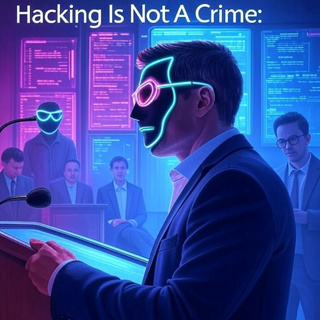
Hacking Is Not A Crime: A True Story
This excerpt from a YouTube video features an interview with Alberto, a self-taught computer engineer from Uruguay who became the first person jailed for cybercrime in his country. The discussion centers on his early hacking experiences at age 12, his responsible disclosure of significant security vulnerabilities to the Uruguayan CERT in 2014 and 2015, and the unjust legal repercussions he faced, including nine months of imprisonment and the seizure of his assets. Alberto emphasizes that "hacking is not a crime" when done ethically for research and reporting purposes, highlighting the lack of legal protections for white-hat hackers in Uruguay and the negative impact this has on cybersecurity. The interview also touches upon the trauma and loss he endured due to his incarceration and offers advice to aspiring cybersecurity professionals, stressing the importance of passion over money and preparing for the difficult, often unaddressed, real-world challenges of the field.
9 Juli 39min

The Hacker's Dilemma: Good, Evil, and Justice
The YouTube video from "CYBERMIDNIGHT CLUB" discusses the complex relationship between legal cybersecurity professionals and illegal hackers, asserting they often share similar skills, interests, and appearances. The speaker, a security professional, explains that understanding and even embracing hacker culture is essential for effectively combating cybercrime, leading to a blurry line between "good" and "bad" actors. The video also critiques the legal system, exemplified by the case of Alberto, for its failure to distinguish between a cybercriminal and a security enthusiast based solely on superficial indicators like hacker paraphernalia, rather than focusing on concrete evidence of a crime. This excerpt highlights the inherent difficulty in accurately judging individuals in the cybersecurity realm due to these shared characteristics.
9 Juli 4min

CyberSPEAKS: A Podcast Audience Deep Dive with Jack Rhysider and Alberto Daniel Hill
The "NEW YOUTUBE SOURCE" provides excerpts from a podcast discussion on the "CYBERMIDNIGHT CLUB" YouTube channel, focusing on audience engagement and specific episode content. The host highlights episode download figures, noting that an average episode receives 80,000 to 90,000 downloads, with some reaching 100,000. Alberto, a guest for the current podcast, is mentioned as having participated in an episode that garnered 85,000 downloads. The conversation also revisits past episodes, particularly episode 25, which featured a story from Uruguay about an individual who was incarcerated, prompting listeners to form their own conclusions. The segment concludes as Alberto is brought into the live conversation, despite a slight audio echo.
9 Juli 4min



